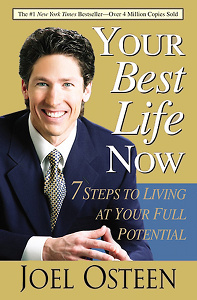 Cover | |
| Author | Joel Osteen |
|---|---|
| Subject | Self-help, religion |
| Publisher | FaithWords |
Publication date | 2004-10-12 |
| ISBN | 978-0-446-53275-4 |
| OCLC | 55149452 |
| 248.4 22 | |
| LC Class | BV4598.2 .O88 2004 |
Your Best Life Now: 7 Steps to Living at Your Full Potential is a book by pastor Joel Osteen. It was published on October 12, 2004, by FaithWords. There is also a calendar, board game, [1] and study guide [2] available based on the book. A 10th Anniversary edition was published on September 3, 2014. [3]